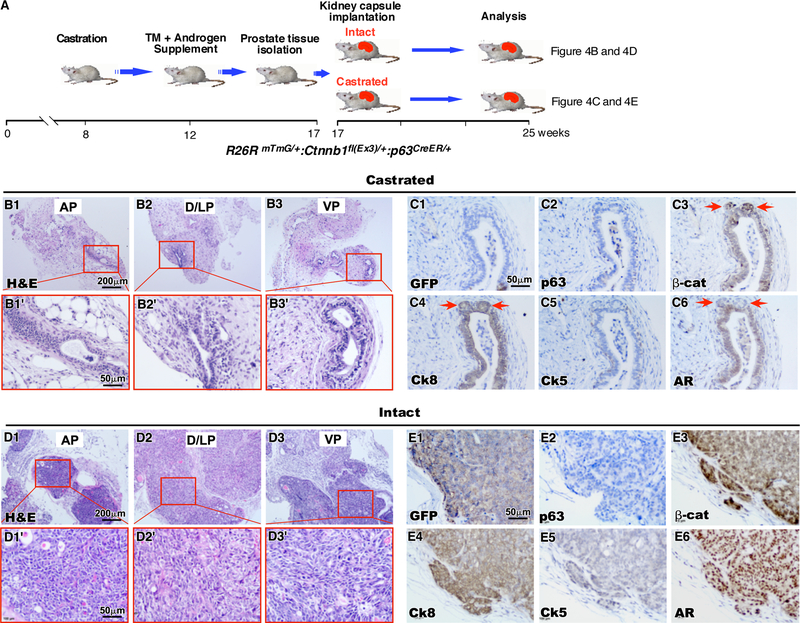Figure 4. Tumorigenesis caused by stabilization of stabilized β-catenin in sensitized p63-expressing cells is androgen dependent.

A. Schematic depicting experimental timeline for kidney capsule transplantation in both castrated and intact SCID mice. RosamTmG/+ Ctnnb1fl(Ex3)/+ p63CreERT2/+ were castrated at eight weeks of age. Four weeks later, the mice were injected with a single dose of tamoxifen and were supplemented with androgen. At 16 weeks of age, these mice prostate tissues were isolated and implanted under the kidney capsule of either intact or castrated SCID mice. Tissue grafts were dissected twelve weeks later (n=4). B. H&E stained sections of graft tissues derived from different prostatic lobes, (B1) AP, (B2) D/LP and (B3) VP, in castrated SCID mice. C. IHC staining of sequential sections of graft tissues harvested from castrated SCID mice with (C1) GFP, (C2) p63, (C3) β-catenin, (C4) Ck8, (C5) Ck5 or (C6) AR (brown). Sections are counterstained with hematoxylin (blue). D. H&E stained sections of graft tissues derived from different prostatic lobes, (D1) AP, (D2) D/LP and (D3) VP, harvested from intact SICD mice. E. IHC staining of sequential sections of graft tissues from intact SCID mice with (E1) GFP, (E2) p63, (E3) β-catenin, (E4) Ck8, (E5) Ck5 or (E6) AR (brown). Sections are counterstained with hematoxylin (blue).
